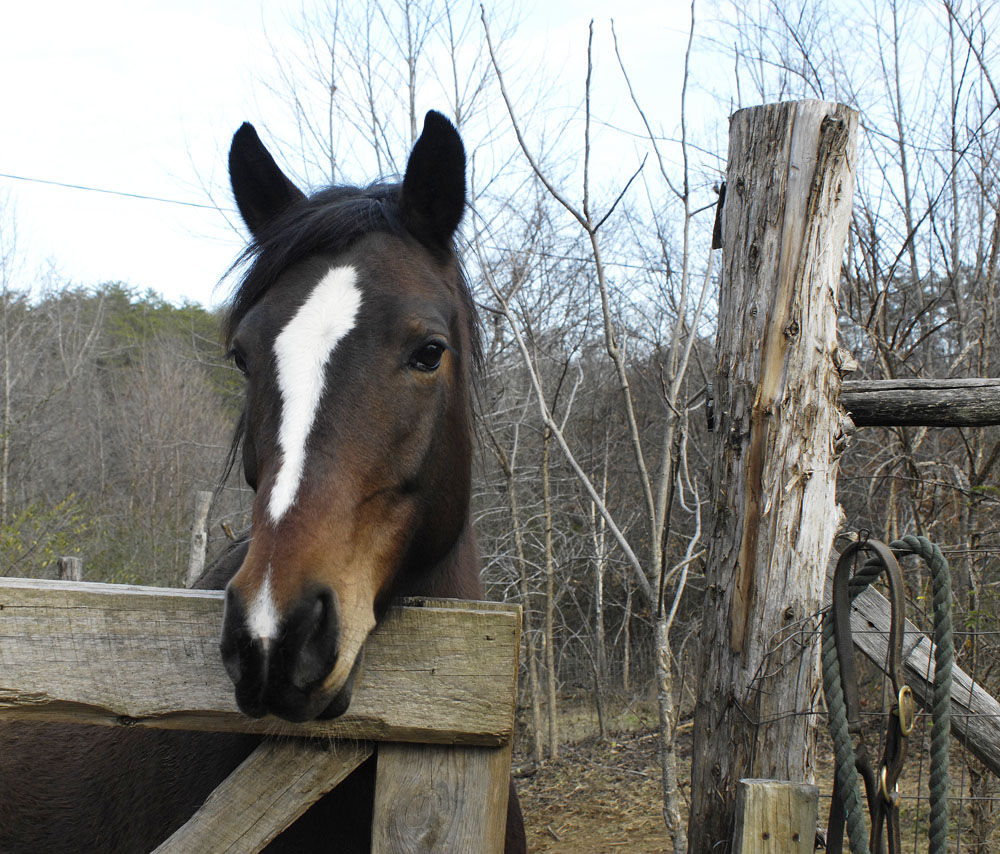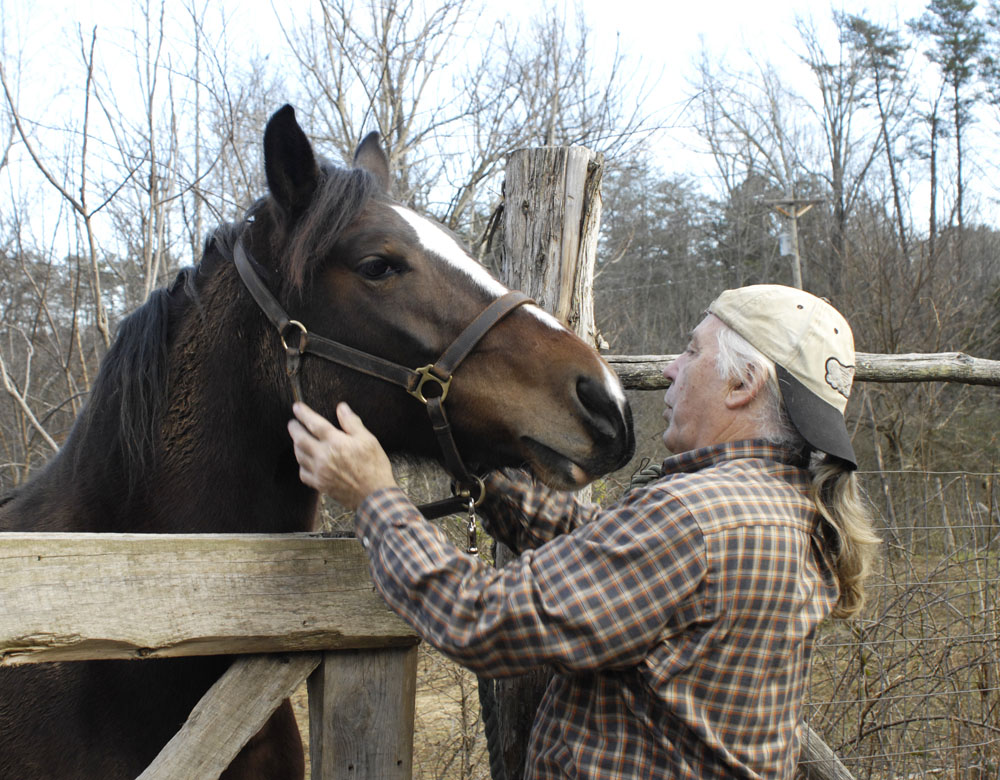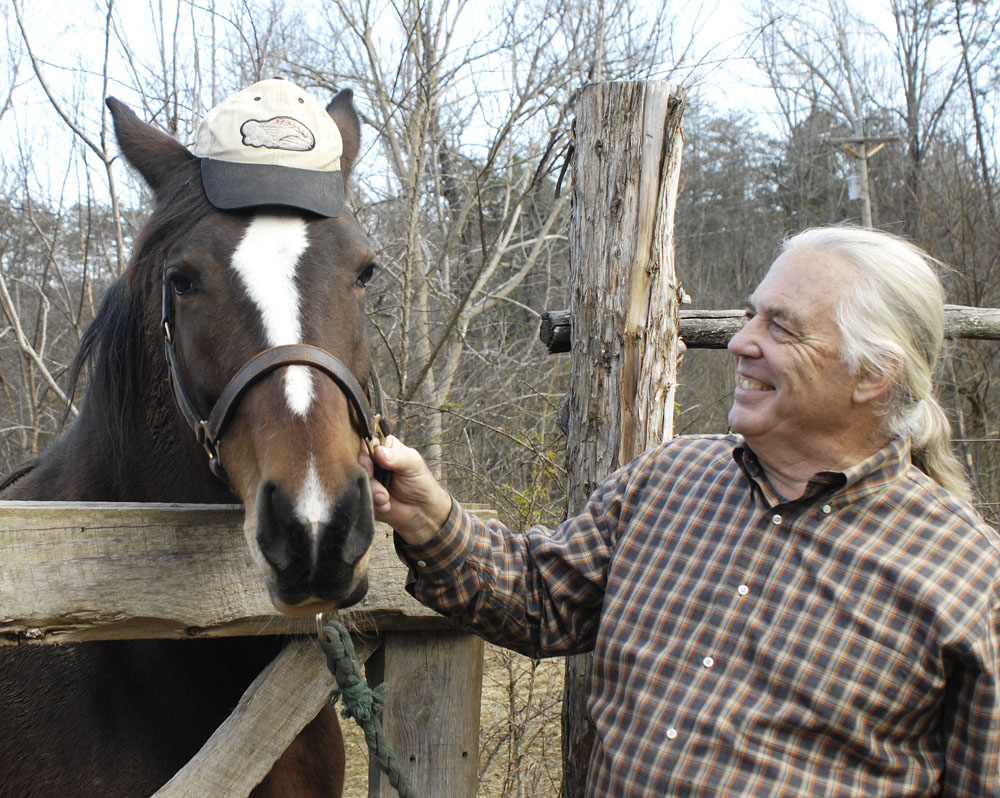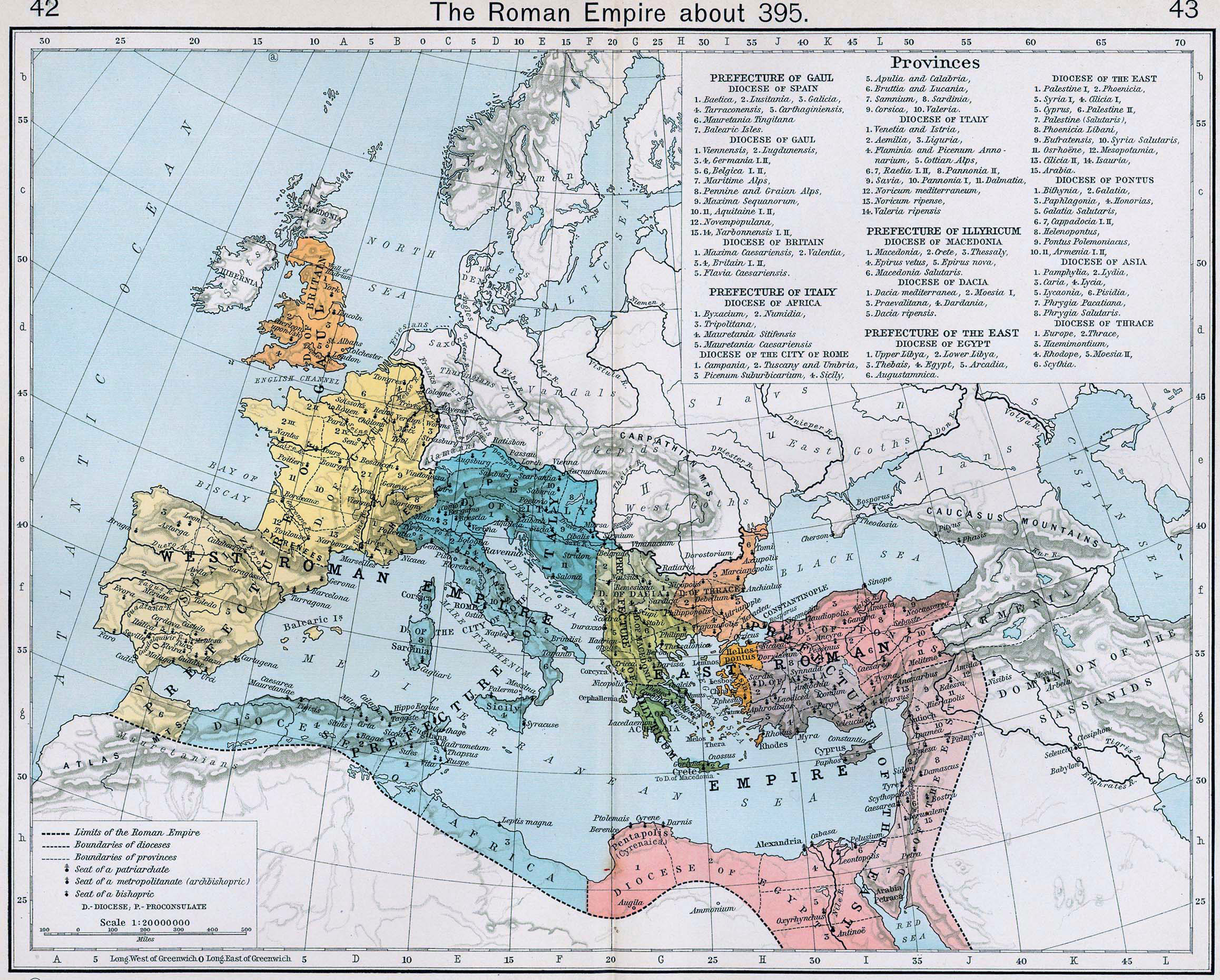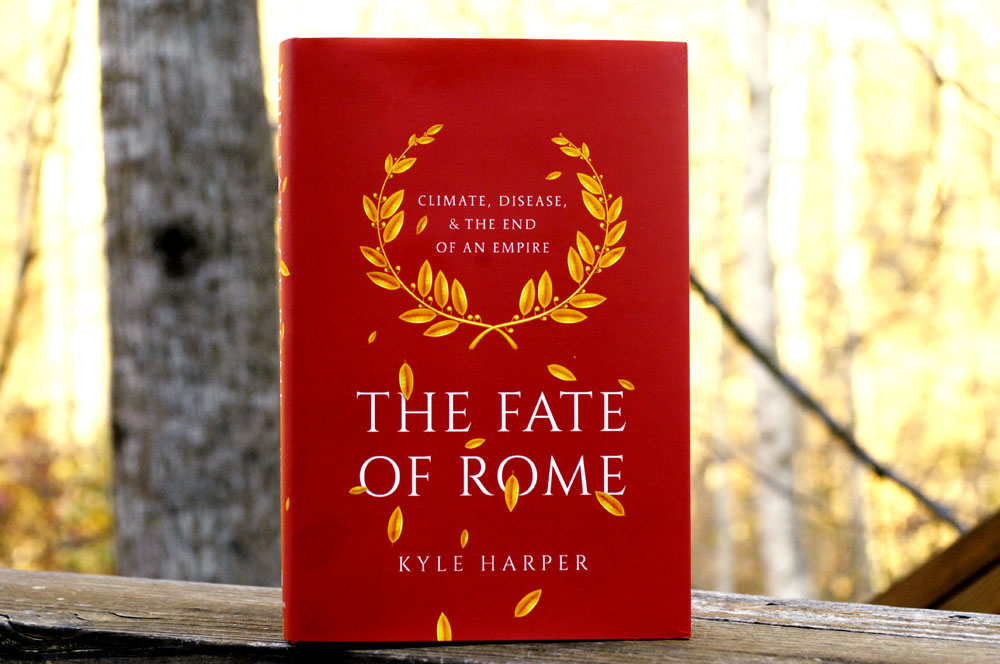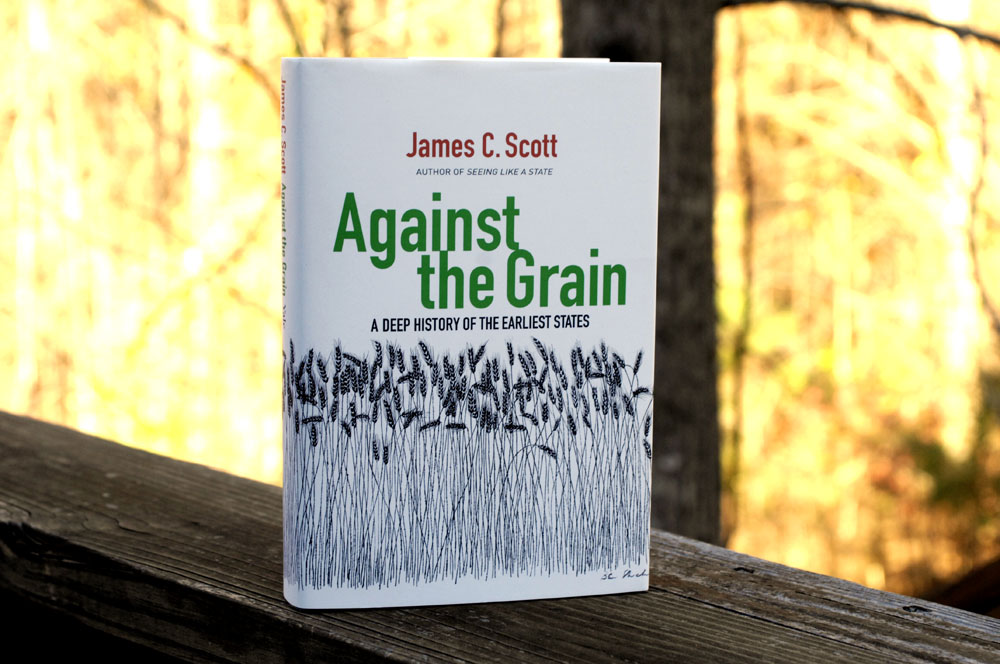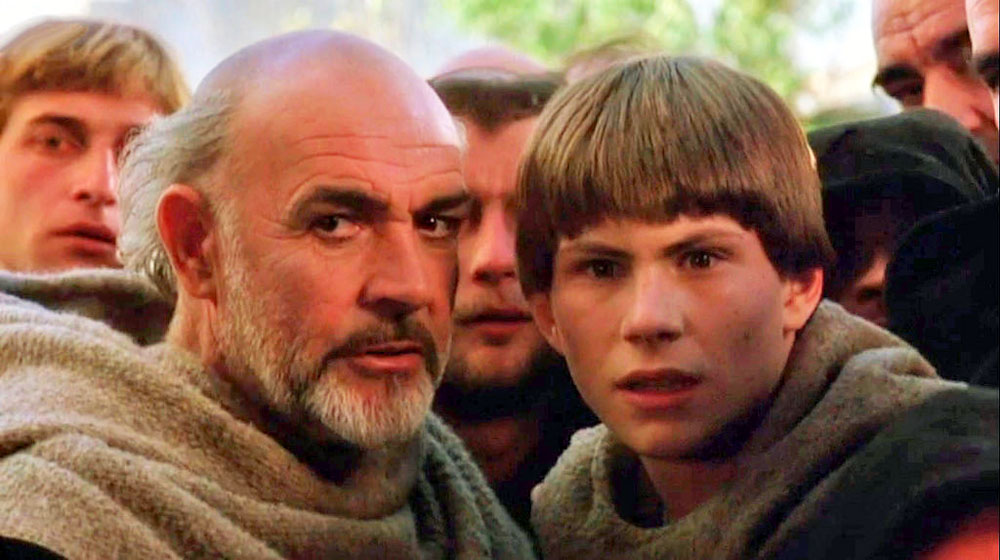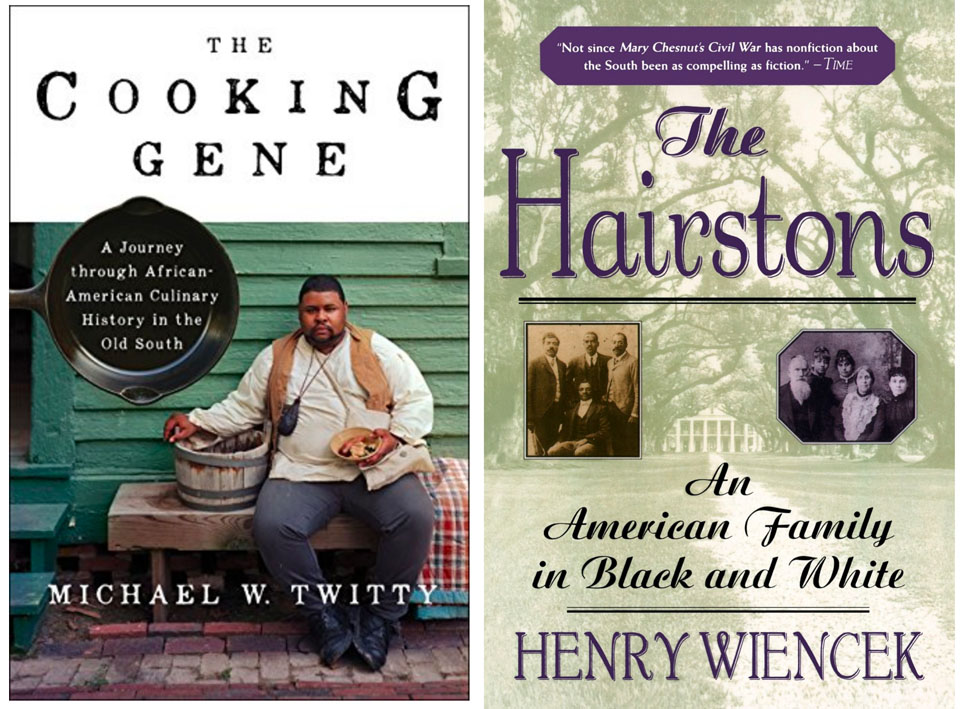Somehow I knew that only special people could live in that old house. There were many clues: The complete absence of no-trespassing signs; the horse tracks; the lace curtains in the upstairs windows; the smoke from the kitchen chimney; the unpretentious elegance of the clutter; the not giving a hoot what people think; not living like other people live; an obvious reverence for the best of the past; an un-consumerist self-sufficient style with nothing bought from Lowe’s. Late this afternoon I met Gary (one of the two human residents), Abby (the horse), George (a cat), and Sam (George the cat’s brother and a fellow drop cat1. The lady of the house was not in.
Here is a link to my previous post about this house, when I saw it only from the road.
I had been on a photo-shooting expedition and had a lot of camera stuff in the car. I drove by on my way home, hoping to see someone outside. I was in luck. Gary was out back sawing firewood. I politely left my car on the side of the unpaved road, walked up the driveway, hailed the man who was cutting wood, and introduced myself to Gary.
“I’ve heard of you,” said Gary. I didn’t ask how or where, but it’s good to know that I’m notorious — at least with those with similar values. I stayed for more than an hour, and we had a very fine neighborly talk. Gary showed me the interior of the house. He introduced me to some of the animals. He showed me some of his projects. We talked about the neighborhood. The abbey is about two miles from Mystery House by road, but only about a mile and a half if you walk through the woods up Lynne Creek, which touches the abbey’s land as well as Gary’s.
I was wrong about the age of the house. It’s much newer than I thought, built in 1910. Though it was not an inn on the Great Wagon Road2, as I had imagined, it does sit right on the old wagon road. Gary knew much more about the exact path of the old wagon road than I did, including the place where the road crossed the Dan River, just downhill from Mystery House. Though the house wasn’t an inn, it also was not a farmhouse, as I had guessed. It was built by the family of Gary’s first wife. They had outside income, Gary said, and did not rely on farming for a living.
Inside, the kitchen, parlor, and downstairs hallway were cozy, with a wood fire going strong in a large steel stove. The parlor was decorated for Christmas. I saw a television, and a washer and dryer, but otherwise everything was completely old-fashioned and greatly reminded me of how my great uncle Barney’s house looked in the 1950s. Gary said that he and his wife consciously do their best to live the old way.
I remarked on the absence of no-trespassing signs and ventured a guess: “You don’t believe in that, do you?” I asked. Gary shook his head. He has the same attitude toward neighborliness and the openness of the land as the residents of the abbey. Gary knew far more about the local history than I do. He and his wife are members of the county historical society. I learned a lot from talking with him. We are true neighbors in the old-fashioned sense: We live on the same creek. We’d give anything to see the Dollar Generals going bankrupt because local people are creating their own economy.

⬆︎Gary and George on the front porch
Watching Abby interact with Gary, I easily detected that he had raised her from a colt. They understand each other. Abby is confident and sociable. She let me kiss her nose. I told Gary that if he ever needs a horse-sitter to please let me know. Gary promised to ride Abby up the creek for a visit.

⬆︎Gary is building a stone cottage in his free time, behind the big house.
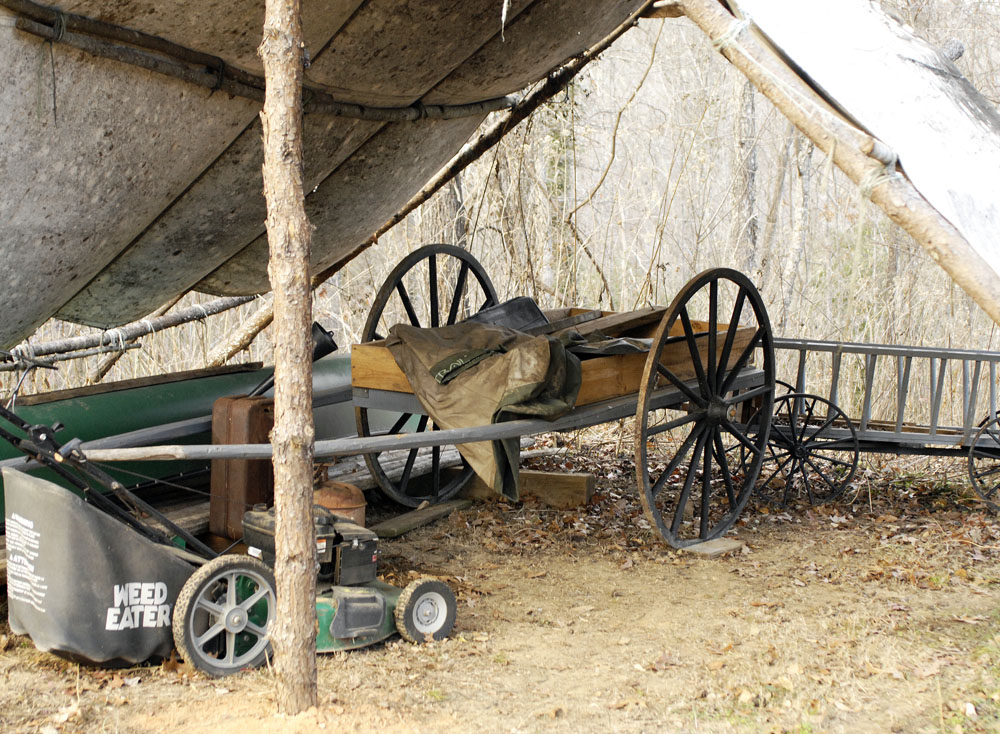
⬆︎Gary also is building an Amish-style cart for Abbey to pull

⬆︎Sam ended up climbing inside my car.
1. Drop cat: An abandoned cat typically left near the home of someone who, it is suspected, will take it in and take care of it.
2. Great Wagon Road: During American colonial days, a major wagon highway from Pennsylvania to Georgia. See the Wikipedia article.



